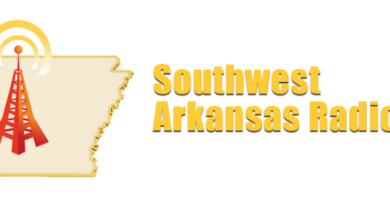Arkansas State Broadband Office launches survey, community engagement effort to build Digital Skills and Opportunity Plan
The Arkansas State Broadband Office (ASBO) recently launched its Digital Skills and Opportunity Survey as part of the state’s larger planning process to better understand the complexities of the digital divide. As part of the Infrastructure Investment and Jobs Act that Congress passed in 2021, Arkansas received more than $840,000 to study the state’s digital divide, create a plan to address its digital skills gap, and learn more about the unique challenges that stand in the way of various segments of the state’s population affording and using high-speed internet. This comes on top of an additional $5 million investment to create a five-year action plan for internet access.
The ASBO is overseeing all work related to the development of both plans and is committed to expanding access to affordable, high-speed internet to all Arkansans. To ensure the agency engages with all segments of the population, the office has contracted with Heartland Forward, a Bentonville-based nonprofit organization, to coordinate engagement with Arkansas counties, mayors, community members, and other key stakeholders across the state – such as members of the Arkansas Connectivity Coalition including the University of Arkansas, University of Arkansas System Division of Agriculture Cooperative Extension Service, Winrock International, Communities Unlimited and the Arkansas Black Mayors Association. These partners are working with the ASBO to conduct focus groups, along with other information gathering efforts, that will inform the state’s final plan.
“Ensuring that all Arkansans have the digital skills essential for the 21st Century digital economy is critical for our state’s future success,” said Arkansas Secretary of Commerce Hugh McDonald. “Understanding – and eliminating – the digital skills gap is an important element in developing the state’s workforce and providing a brighter future for Arkansans.”
Specific work undertaken by these stakeholders includes assembling the Digital Skills and Opportunity Survey to collect additional information on how and why people use the internet, including challenges they experience and the resources that would be helpful to them in the future. These partners will work with organizations and individuals across the state who have relationships with community members to help the ASBO disseminate these surveys, both online and in paper formats. Additionally, the ASBO and its partners will host a series of community listening sessions, focus groups and interviews to directly engage with communities targeted through the plan.
“Building out broadband access to every single home and business in the state of Arkansas is only one piece of the puzzle,” said Glen Howie, Arkansas State Broadband director. “To positively impact lives for the better, we must see to it that all Arkansans are empowered with the digital skills and resulting opportunities to take full advantage of universal broadband access.”
All stakeholders in the planning believe that getting this right will advance the state’s potential for future economic success in addition to improving quality of life in every community across the state.
“Digital opportunity means making sure all Arkansans, whether they’re in the center of Little Rock or 20 miles away from the closest public library, can quickly and affordably get online,” said Solomon Graves, director of public policy at Heartland Forward. “Getting Arkansas as close as possible to a reality where all people and communities have the infrastructure and technology they desire will make a huge impact in boosting our state’s education, healthcare, agriculture, economic development and overall quality of life.”
The final Digital Skills and Opportunity plan is due to the federal government by mid-November. Thirty days prior to its submission to the National Telecommunications and Information Administration (NTIA), a version will be available for all Arkansans to review and share feedback through a public comment process. The current planning process is particularly important because Arkansas’ report will set the state up to be competitive with other states and territories for additional investments in closing the digital divide going forward.
Please contact Clark Cogbill (CCogbill@ArkansasEDC.com) or Lara Cooper (lara@cstrategies.com) with any additional questions.


